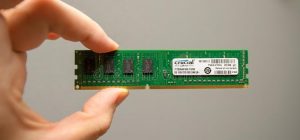
RAM is an important factor when choosing servers for our needs. This article outlines some key attributes for choosing servers and helps you match memory to the performance and reliability requirements of the server and its anticipated workload.
What is RAM?
RAM (Random Access Memory) is an important part of any hardware designed to perform computing tasks. RAM allows servers to write and read information that the device is accessing from storage. When people talk about computer server memory, they most likely refer to the computer’s RAM. The more memory available, the more items/actions the server can read, write and execute.
How to choose RAM for Servers?
Deciding how much RAM you need depends primarily on your unique needs and intended usage. You need to consider at least six factors when deciding how much RAM your server will need to perform to its maximum potential:
1.Size of Databases: The most important consideration due to its direct impact on processing needed to populate a data warehouse. If someone’s database size is in the 100 GB range, it is recommended that the storage space be 16-64.
2.Number of Users: If you have over 15 concurrent users, consider adding 1-2 GB of RAM to every 5 additional users.
3.Execution Packages: The more RAM your server is equipped with, the faster it will complete execution packages.
4.Rate of Growth: You should consider the annual growth rate of the database and take it into consideration when choosing RAM.
5.OS Requirements: You reserve 1 GB RAM for the OS, plus an additional 1 GB for every 4 GB between 4-16 and another 1 GB for each 8 GB above 16 GB. For example, a server with 32 GB RAM uses 7 GB for the OS and the remaining 25 GB for the SQL Server.
6.Dedicated VS Shared: When determining RAM make sure you account for any additional software operating on your server.
Selecting RAM for servers is not an easy task if the IT staff isn’t familiar with what’s on the market. If you have any question about choosing RAM for severs, welcome to contact us (sales@router-switch.com) and we will provide you with professional advice.
Related Topics:
Memory Card: What’s the difference between ROM and RAM?
4 Key Components of a Server: CPU, Memory, Hard Disk & RAID Card
Memory Card: What’s the difference between ROM and RAM?
Rack Server Comparison: Dell R740 vs. HPE DL380 G10 vs. Lenovo SR650







